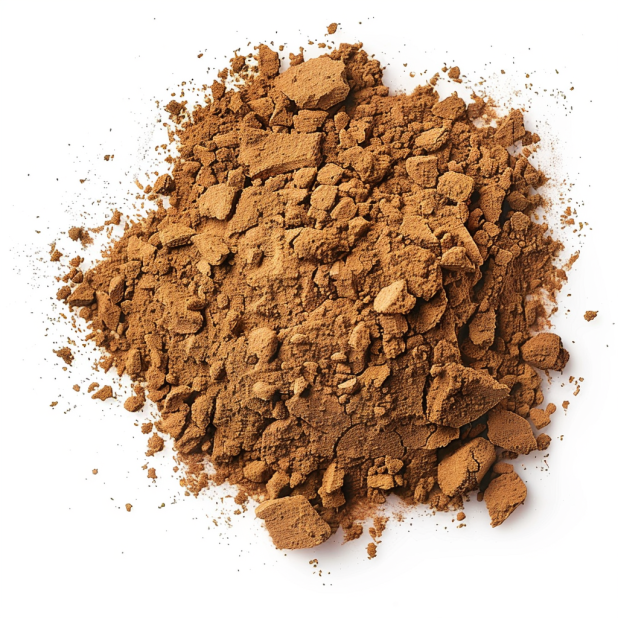The complex thread of modern pharmaceuticals is carefully intertwined with strands of scientific breakthroughs, creativity, and continuous efforts for better human health. In this rich texture, African botanicals have become a notable and sometimes overlooked thread connecting the past and future in medicine.
The medical industry has increasingly focused on nature’s wealth in search of new therapeutic agents. African botanicals, characterized by a long history of traditional healing and diversity in biodiversity, have an endless pool of possible medications for various health conditions. The role of African botanicals in modern pharmaceutics is deeply discussed, defining its historical background, present-day scientific research, and potential possibilities for future health care. Despite the transforming nature of pharmaceuticals, African Botanicals remain a symbol of perpetual harmony between traditional knowledge and modern scientific approaches. As we pursue this topic further, it will reveal how these botanical gems are being applied to address some of the most prominent modern-day healthcare issues.
A Legacy of Traditional Healing
As a time-honored practice, generations of African indigenous communities have looked after their peoples’ welfare through traditional healing, which has remained so. Born out of the symbiotic relationship between humanity and nature, African botanicals have been the centerpiece of this old practice. Their knowledge has been preserved not only by their diligent work but also because of the wisdom passed down from generation to generation. With their long history of therapeutic use, these botanicals provide a glimmer of hope and healing as humanity, in a relentless pursuit to find modern pharmaceutical wonderments, turns to the wealth within nature.
Unearthing the Chemical Treasure Trove
Over the past decades, scientific studies on African botanicals have discovered an enviable stockpile of chemical compounds that have become a treasure trove of natural reservoirs. These botanicals, which have their basis in ancient healing traditions and science, now reveal themselves to modern eyes as a complicated system of biologically active compounds.
These include alkaloids, flavonoids, terpenes, and polyphenols, which inherently have their potential for therapeutic uses. The studies of African botanicals have provided an understanding of their variegated chemical components, which helped lay the ground for new drug design. These compounds, a little-known source in the past, are now potential sources for resolving many health problems ranging from infectious to chronic ones. The pharmacopeia represents not only the knowledge of traditional medicine but hints at a future where nature plays an essential part in modern therapeutics. With more research, the possibilities for earth-shattering pharmaceutical development became alluring and motivating.

The Fight Against Infectious Diseases
In the ruthless fight against infectious pathogens, African botanicals provide valuable allies. These natural resources, associated with the traditional view of healing practices, offer a wide range of bioactives. These compounds, including alkaloids, flavonoids, and polyphenols, have remarkable bacterial and viral properties. As the number of bacteria resistant to antibiotics grows and challenges are constantly posed by emerging viral pathogens, finding new treatments becomes more desperate.
African botanicals, including plants such as Sutherlandia frutescens, have effectively dealt with these problems. Their antibacterial and antiviral promise leaves a sliver of light in our struggle with infectious diseases. Going deeper into the chemical structure of African botanicals, these natural remedies may be a solution to fighting some of humanity’s most enduring health challenges. The synergy between traditional knowledge and modern science allows innovative approaches to emerging against infectious diseases.
Harnessing Nature’s Anti-Inflammatory Power
Arthritis and inflammatory bowel disease are chronic conditions that significantly burden healthcare facilities worldwide. African botanicals have taken center stage as a rich source of anti-inflammatory agents. Other plants, such as Harpagophytum procumbens (devil’s claw), have demonstrated anti-inflammatory actions like conventional drugs but with fewer adverse reactions.

Devil’s claw extract
Devil’s claw extract was first used by South Americans over 2,000 years ago. Back then, it was applied to combat muscle and joint pain. Nowadays, it’s popular mainly in natural medicine.
A Light of Hope in Cancer Treatment
As such, cancer is one of the toughest challenges for modern medicine that should be addressed in unique ways. In this regard, African botanicals have also shown some promising results. The periwinkle of Madagascar (Catharanthus roseus) produced vinblastine and vincristine, powerful chemotherapy drugs for treating diverse cancers. This finding shows the importance of African plants in cancer treatment.
Conclusion
African botanicals are deep-rooted in tradition as the sources of medicine and good health. Scientific efforts to examine these types of plants have revealed their enormous variety in chemical composition and potential use as modern medicine. From fending off infectious diseases to easing chronic illnesses and playing a role in cancer treatment, these botanicals bring a sigh of relief to the pharmaceutical industry.
Although the path from traditional healing methods to drug innovation may be difficult, it is essential to highlight the need to preserve indigenous knowledge and sustainable utilization approaches. Integration involving traditional healers, scientists, and pharmaceutical companies can optimize the benefits of African botanicals while conserving them. In an age when the pharmaceutical industry is pressured to search for new and efficient treatments, African Botanic can prove that nature has its wisdom, and these traditional healing methods still hold on. Let us adopt Africa’s vast natural resources and work out new pathways to healthcare innovation, yielding quality products for people worldwide.
References
Bahorun, T., Neergheen, V. S., & Aruoma, O. I. (2008). Botanical drugs, nutraceuticals and functional foods: The context of Africa. In Nutraceutical and Functional Food Regulations in the United States and around the World (pp. 341-348). Academic Press.
Bahorun, T., Neergheen, V. S., & Aruoma, O. I. (2008). Botanical Drugs. Nutraceutical and Functional Food Regulations in the United States and Around the World, 341.
Mbele, M., Hull, R., & Dlamini, Z. (2017). African medicinal plants and their derivatives: Current efforts towards potential anti-cancer drugs. Experimental and Molecular Pathology, 103(2), 121-134.
Ozioma, E. O. J., & Chinwe, O. A. N. (2019). Herbal medicines in African traditional medicine. Herbal medicine, 10, 191-214.


